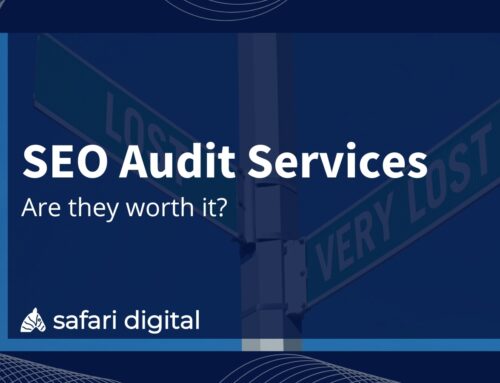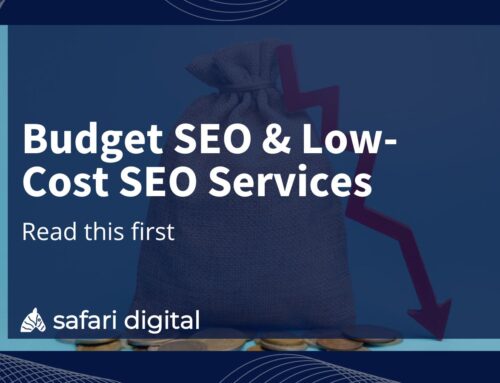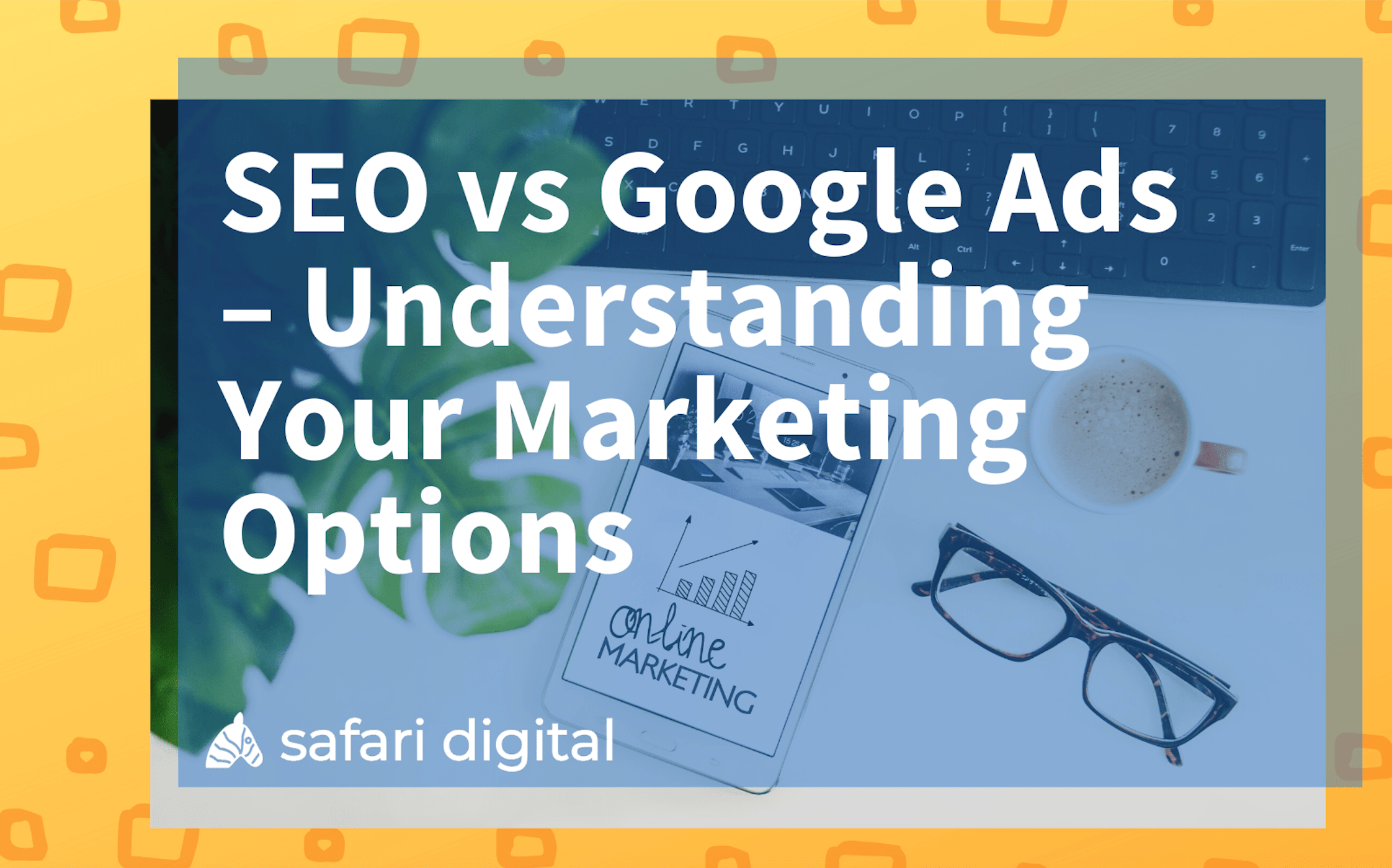
SEO vs Google Ads – it’s the age-old question in the digital space that has many marketing professionals divided. Most marketing managers or business owners will at some point come to the roadblock of SEO vs Google Ads, and begin to question which will generate the most revenue for their business.
Because that’s what it comes down to – finding the right search engine marketing strategy that provides the most online traffic, leads, and in turn, revenue. For that very reason, the question of whether organic SEO vs AdWords will be better for your business will mostly depend on the kind of organisation you run and where you want to find your leads.
Both SEO and AdWords come with their advantages and disadvantages. The two marketing strategies have their differences and similarities, and often, businesses will find that the perfect route is actually a strategic combination of the two. To get a better understanding of your marketing options, in this article, we’ll break down the main differences of SEO vs Google Ads to ensure you can make an informed decision.
Google Ads: A Breakdown
Google offers paid advertisements that are visible in search engine results on Google and other Google associated websites. Developed by Google, the platform allows business owners and advertisers an opportunity to a display of brief advertisements with service offerings, product listings or business information on a targeted area of the web.
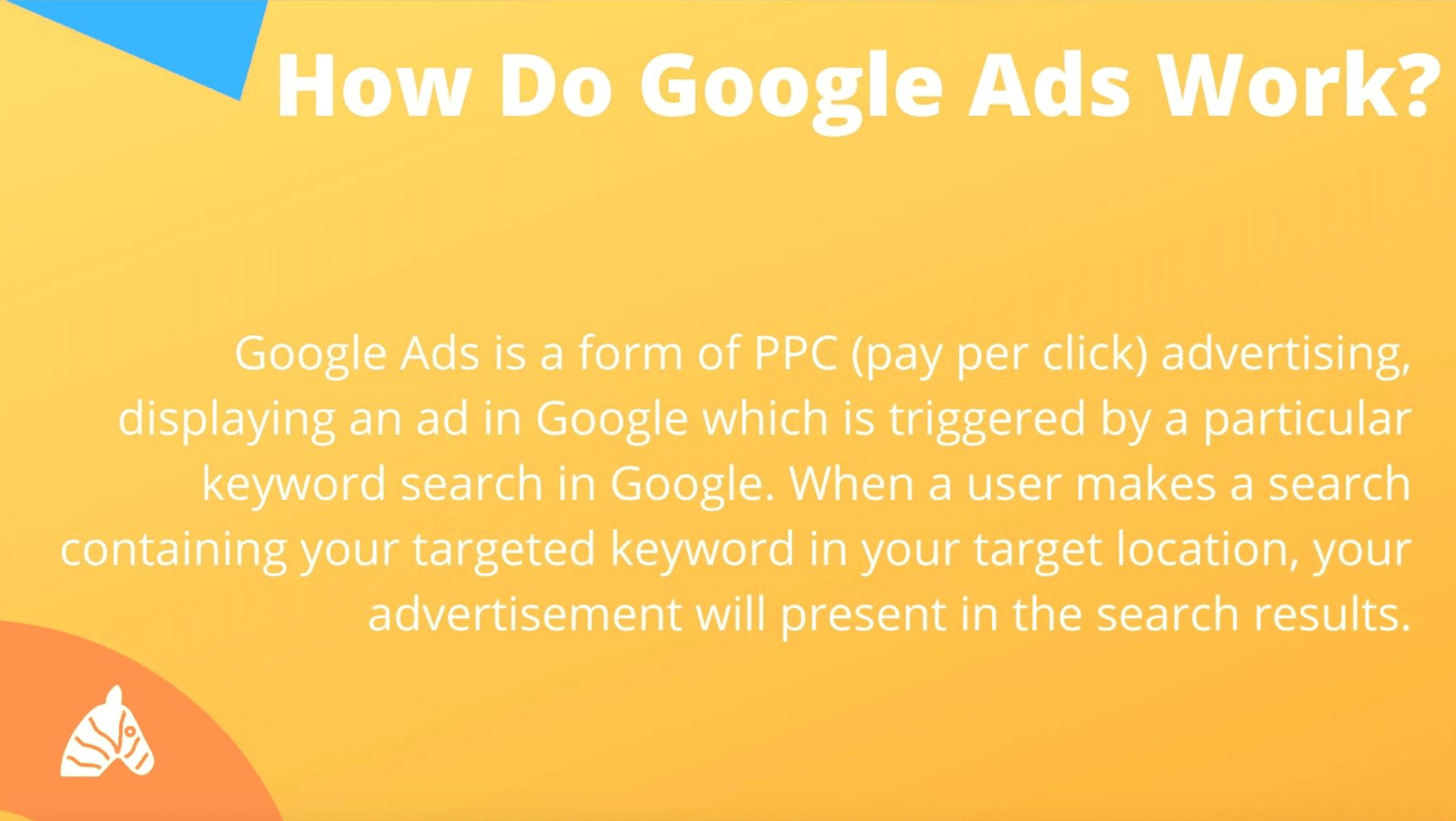
Google Ads is a form of PPC (pay per click) advertising, displaying an ad in Google which is triggered by a particular keyword search in Google. When a user makes a search containing your targeted keyword in your target location, your advertisement will present in the search results. However, it will appear as an ad and not an organic search engine result listing – one of the major considerations for Google AdWords vs SEO.
Unlike an organic listing, Google charges you every time someone clicks on the advertisement. As you set your own maximum CPC (the highest amount you are willing to pay Google every time someone clicks on your ad), your target keywords, locations and demographic settings, you do have control over the cost and nature of your Google Ads campaign.
How Does SEO Compare?
SEO, or Search Engine Optimisation, is the process of improving a website and a business’s online presence in order to increase visibility and get noticed by more customers in the search engine results. SEO works on the premise of improving your site to outrank your competitors in organic search results.
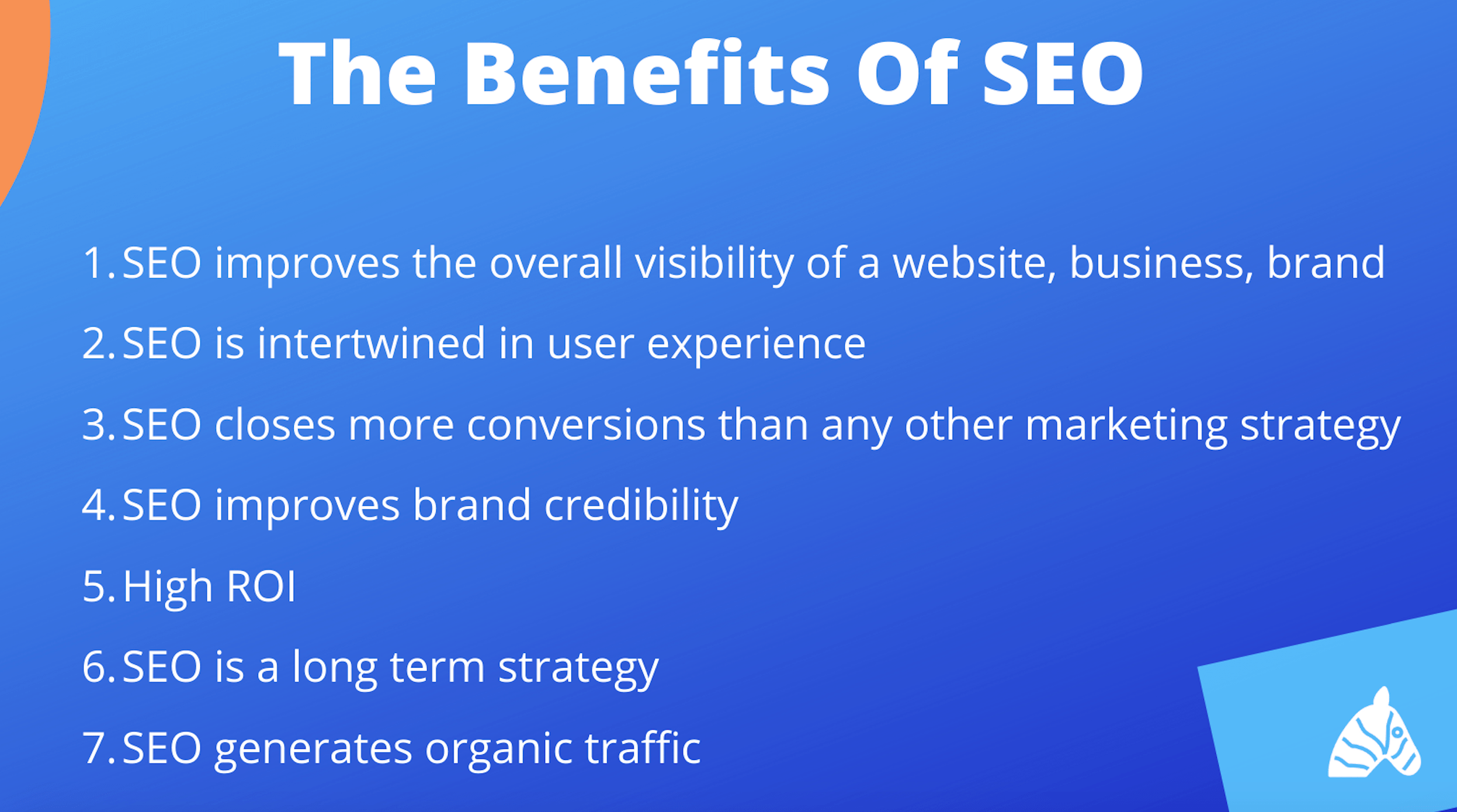
In terms of SEO vs AdWords, organic optimisation works on more of a long-term trajectory than Google Ads. An SEO expert may spend months optimising, tweaking, and adapting a website to improve its organic visibility. However, good SEO will generally continue to benefit a site long after the SEO work has concluded.
By targeting several focus keywords, you ensure that your site is displaying to the right people at the right time; those who are ready to purchase and already have been actively seeking out your product or service in your target location.
While it may cost you to implement an SEO campaign, the organic traffic is entirely free and relies on how the website displays in search engine results. A significant consideration of SEO vs Google Ads is that, on average, the conversion rate is higher for organic search results as users have more trust in websites that have built up the authority to rank well.
SEO vs Google Ads: The Major Differences
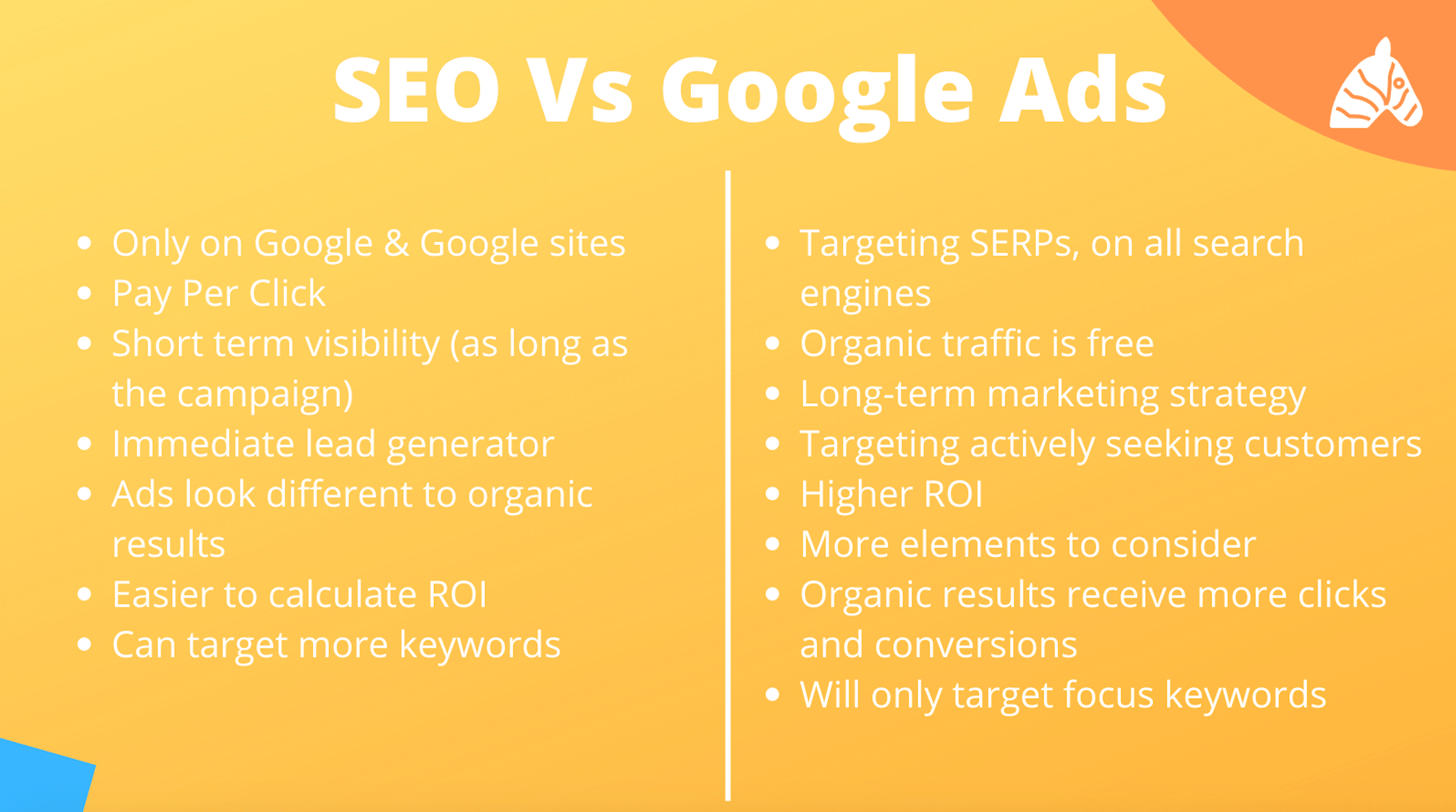
- An AdWords campaign can only extend as far as Google and websites that are either owned by Google or are using Google AdSense. SEO strategies can and will be applied to benefit a site in all search engines.
- The most significant difference is that Google Ads traffic works on generating paid traffic (you are paying for each ad placement, and each click that the campaign produces). SEO generates organic traffic; meaning, it improves the visibility of websites in organic search results for users who are already researching the website, product, or service.
- Google Ads is a short-term marketing campaign; you will create and run immediate advertisement campaigns and start getting targeted traffic early on. SEO takes a lot more time, patience, and vision; however, it is more sustainable and will provide long-term benefits.
- When your Ads campaign concludes, the generation of traffic will stop. Google Ads is very limited to the length of the paid campaign. With SEO, best practices are implemented to provide a long-term and sustainable marketing effort that will continue to generate traffic long after the campaign has concluded.
- For organic SEO vs AdWords, Google Ads runs advertisements with their AdSense platform, SEO relies on targeting users who are already looking for the product or service.
- When it comes to Return on Investment (ROI), SEO trumps Ads every time. For Ads, every time a customer clicks through to an advertisement, it costs the business. Where SEO targets organic traffic, in which consumers are already looking for the product or service.
- It is much easier to calculate ROI on Google Ads than with an SEO campaign. This is because there are a lot more elements at play within an SEO campaign, not just ad spending and revenue.
- Google Ad campaigns allow the business to target many keywords at the same time, depending on the advertiser’s budget and the competitiveness of each keyword. SEO requires a focused approach on just a few selected target keywords for best results.
- Google Ads can be placed on other Google websites and websites that use Google AdSense. SEO strategies are applied and will only focus on improving visibility and rankings on the search engine results pages.
Which Should I Choose: Google AdWords vs SEO?
There are many elements to consider when choosing your marketing strategies. Both Google Ads and SEO can be immensely beneficial to your business. Factors such as your budget, time frames, current revenue, service or product pricing, industry or niche, current online presence and even what your competitors are doing are all important considerations for your marketing strategy.
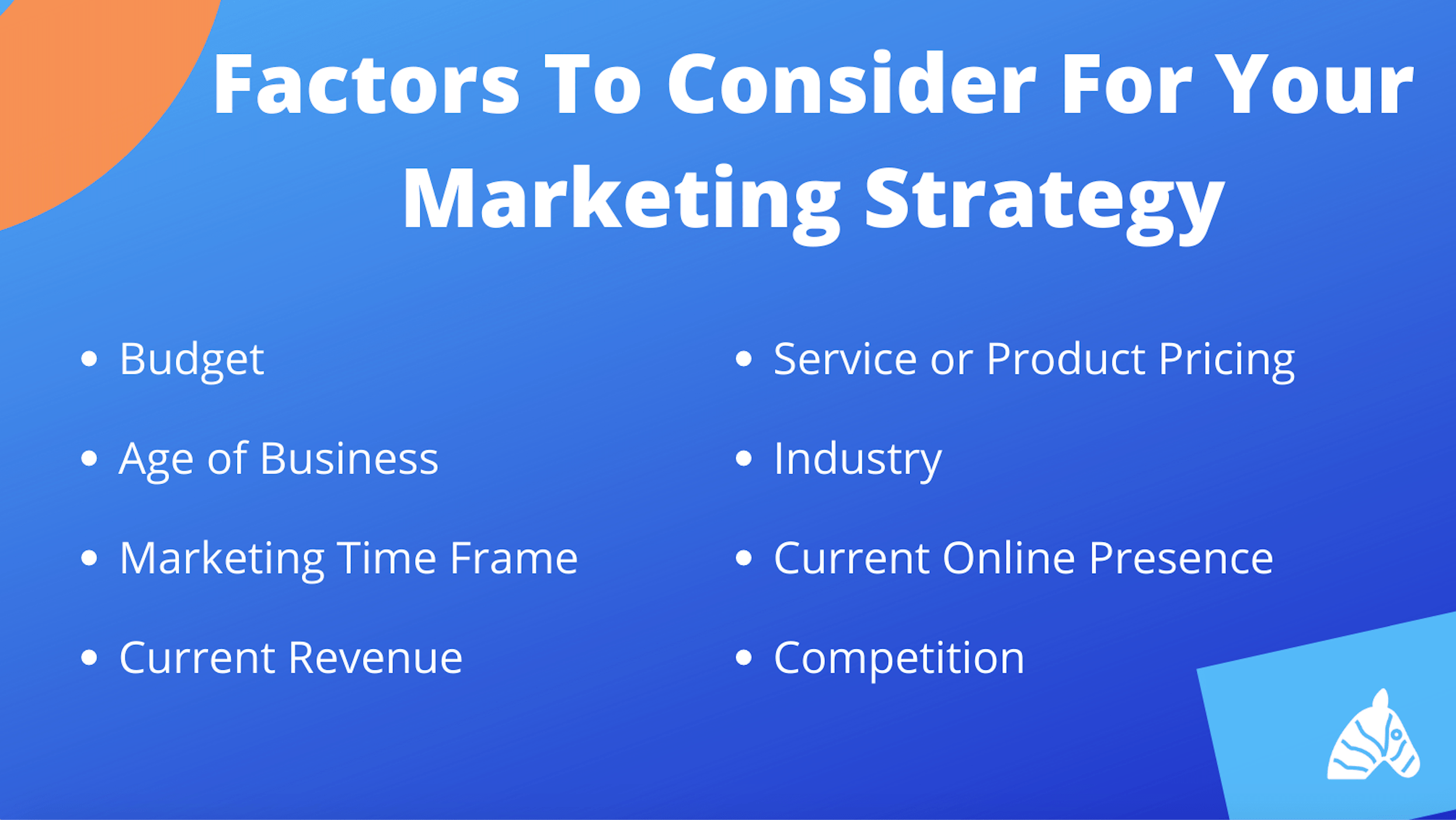
It’s also important to consider the potential a combination of the two can do for your business. Rather than trying to work out which is better between SEO vs Adwords, you could manage a marketing strategy that applies both. If you have the budget, the perfect marketing strategy may be to implement Google Ads as a short-term lead generator, and SEO for a long-term sustainable marketing strategy.
In 2020, consumers are much more in tune with what paid advertisements look like in comparison to organic search results. This increased awareness means that users may be put off by the appearance of a paid advertisement, in comparison to a website that has earnt their way up into the top of the search results.
For this reason, we believe that SEO is the future of search engine marketing. We are driven by the belief that a well-executed SEO campaign has the potential to transform local businesses into thriving big players online. If you’d like to learn more about how SEO can drive organic traffic to your business, get in touch with one of our expert SEO consultants at Safari Digital today.


